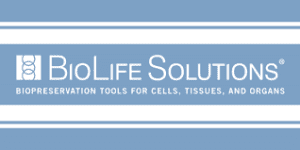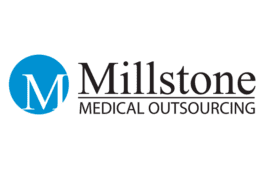 BioLife Solutions Inc., a biological storage developer and Brooks Automation, a global provider of automation and cryogenic equipment for life sciences, recently collaborated on a shipping and storage study to support best distribution practices for time and temperature sensitive biologic materials. Both companies serve the regenerative medicine industry and are focused on delivering products and services that enable commercialization of cell-based products, including CAR T-Cells and other cell types, targeting cancer, heart disease, diabetes, stroke, movement disorders and loss.
BioLife Solutions Inc., a biological storage developer and Brooks Automation, a global provider of automation and cryogenic equipment for life sciences, recently collaborated on a shipping and storage study to support best distribution practices for time and temperature sensitive biologic materials. Both companies serve the regenerative medicine industry and are focused on delivering products and services that enable commercialization of cell-based products, including CAR T-Cells and other cell types, targeting cancer, heart disease, diabetes, stroke, movement disorders and loss.
 The study was presented as a poster at the International Society for Cellular Therapy (ISCT) 2016 Annual Meeting in Singapore.
The study was presented as a poster at the International Society for Cellular Therapy (ISCT) 2016 Annual Meeting in Singapore.
An expanded white paper is also available for download.
In the study, current practices for cell freezing using a serum-containing home-brew freeze media and shipping using a common foam dry ice container were compared to best practices of using serum-free, clinical grade CryoStor freeze media and evo Smart Shipper. Cells were frozen, shipped from BioLife to Brooks, transferred to liquid nitrogen storage for 45 days, then shipped back from Brooks to BioLife and assessed for viability and functional recovery. Significant improvement in total cell survival (viability) and faster regrowth (recovery) post-thaw were observed in the cells frozen in CryoStor and shipped in the evo Smart Shipper.
Specific findings included:
- Jurkat T-cells frozen in traditional 95/5 percent cryomedia and shipped in an EPS container experienced a significant decline in viability immediately post thaw and a delayed return to function 48 hr post-thaw.
- The combination of CryoStor CS5 and the CRYO evo smart shipper provided protection from cryopreservation and transportation stress with no measurable decline in structural and functional viability as a result of freezing, thawing and two cross-country transit events.
- The CRYO evo smart shipper and biologistex cloud-based shipment application allow real-time status, tracking and event alarms throughout the entire shipping process, permitting enhanced tracking and knowledge of any environmental excursions as they happen.
- The design of the CRYO evo smart shipper prevented payload warming from dry ice sublimation and maintained the Jurkat T-cells within the desired temperature range throughout transit.
- The BioStore III Cryo storage system safely stored the Jurkat T-cells below -190°C, prevented unauthorized access and monitored all activities to ensure no samples ever crossed Tg (-135°C). With LIMS connectivity, reports and alarms, storage conditions and inventory was available at all times.
Aby J. Mathew, PhD, chief technology officer at BioLife Solutions, commented on the results by stating, “This was a very effective collaboration with Brooks, and provides more evidence to the clinical and research community about the benefits of Brooks’ portfolio of sample storage and management tools and for CryoStor, which is optimized to support cells subjected to the stresses of freezing and thawing.”
John Fink, director, product marketing for Cryogenic Automation at Brooks, added, “This study further reinforces the need for enhanced and vigilant temperature monitoring of samples during transit and storage.”
BioLife Solutions estimates the addressable market for small format shipping containers and data monitoring systems at $500 million. Brooks estimates the addressable market for sample management at $1.3 billion.
BioLife Solutions Inc.
biolifesolutions.com
Brooks Automation
brooks.com




